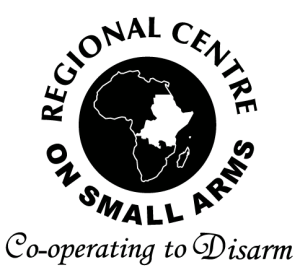
THE FIGHT AGAINST THE ILLICIT ACCUMULATION AND TRAFFICKING OF FIREARMS IN AFRICA
The proliferation of small arms and light weapons (SALW) is often one of the major security challenges in Africa and indeed the world in general. The trafficking and wide availability of these weapons fuel communal conflict, and political instability and pose a threat, not only to security but also to sustainable development. The widespread proliferation of small arms is contributing to alarming levels of armed crime and militancy.
Small arms in Africa have played a major role in every political conflict, from the South, East, and West. Africa. The issue of small arms is as important as life and death, small arms have contributed to the political disintegration of many African states. The effects of the proliferation of small arms are felt by many Africans. In many African countries, there is insufficient human capital to till arable lands, and generations waste their lives by engaging in pointless wars. Children are denied their childhood and are forced to become adults before puberty. Despite all these, the resilience of the African people is demonstrated by the number of activists and other leaders who risk their lives for peaceful change.
Africa already has more than its fair share of weapons in circulation. If this and the assertion that the availability of SALW aggravates and prolongs violence are truisms, then these weapons, much of which are in illegal possession should be collected and managed in a more effective and transparent way. This could even be additionally beneficial to the governments as recollected weapons especially those initially stolen from national arsenals can make the purchase of new weapons unnecessary, although recollection schemes usually recommend their immediate destruction to avoid them getting into circulation again.
To curb the internal proliferation of SALW, it will only be in the best interest of states and governments to secure stockpiles i.e. making it impossible for the theft of weapons from military or police arsenals. For more effectiveness, countries may be required to take stock of existing stockpiles and match the results with the minimum requirements for police and eventual military use. If surpluses do exist, these could be under strict conditions.
A radical review and overhauling of gun legislation by way of greater cooperation within the four sub-Saharan regional organizations could be very instrumental in limiting the number of guns and other SALW in circulation and thus reducing their use. It is true that three of these regional organizations have come together to work out ways of reducing the proliferation of SALW and related materials, two of which are binding, but there has been no attempt to create common gun legislation. With the major challenge of border porosity in many African countries, gun legislation limiting the legal proliferation of weapons in civilian use can only be successful, if neighboring countries also have similar legislation. In case this does not happen, guns will inevitably flow from countries within a given region with stringent legislation to others with less strict laws. This proposal therefore aims primarily at addressing legal civilian firearms possession as one of the major sources of SALW proliferation as we have seen in most African societies.
Civil society is a very dynamic and fast-growing sector with a lot of potential, influence and energy in almost any field, be it in education, health, human rights and good governance or any other kind of advocacy. For the implementation of any of the possibilities mentioned above, it will be absolutely vital to tap into the potential of civil society which can complement governments’ regional and national endeavors with its enormous expertise and nearness to the grassroots.
PROJECT PURPOSE
- This trans-regional approach is provided by the EU Instrument for Stability complements national measures to strengthen the rule of law, good governance, safety and security at regional and national levels.
- The project was implemented on behalf of the African Union and funded by European Union. The implementation of the project was guided by Project Steering Committee (PSC) chaired by the African Union
